WHOA! Anarchapulco Attendees and Typical Chinese Families Have the Same Worries, Same Fears

Where am I?
That's what I thought while sitting among a group of people who supposedly loved freedom. The setting was Anarchapulco's Free Your Family Camp. Dayna Martin was again presenting The Evolution of Children's Rights by Dayna Martin, the same topic she presented at our 2018 Free Your Family Camp in Shenzhen.
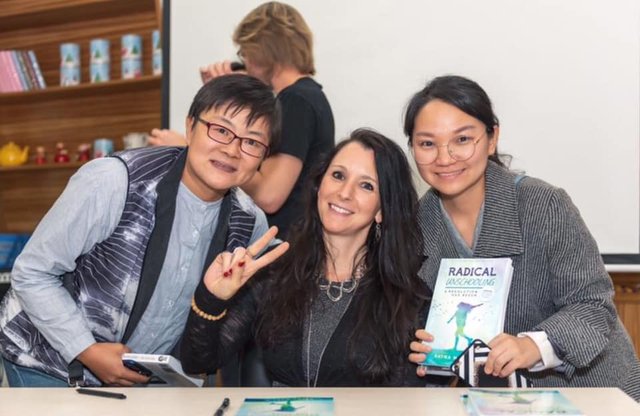
After her speech she took questions. As I listened, I noticed that these freedom-lovers, these free souls who were brave enough to call themselves anarchists had the exact same questions as our parents in China did!!!

So what's going on?
Upon reflection, I think worldwide the programming we experience is quite similar. We're all human and the controllers of our world use the same fear-based conditioning on us. They say that children must go to school. Otherwise:
How will they learn to read?
What about their socialization?
How will they get a job?
I'm inviting you to ask yourself if those questions are true and those fears valid.
I'm advocating unschooling because my goal is to live in a free world. Children raised with freedom will naturally crave liberty in their adult lives while children raised under tyrannical authority will crave that particular dynamic later in life.
That said, I am not saying that you MUST do unschooling. No. In the spirit of Youbanfa 有办法, I am presenting this information to open your mind and show you that if you desire freedom, there is a way.
I am putting this philosophy forward as an alternative to what is thought possible.
Here are the questions Dayna Martin answered presented in video and text form:
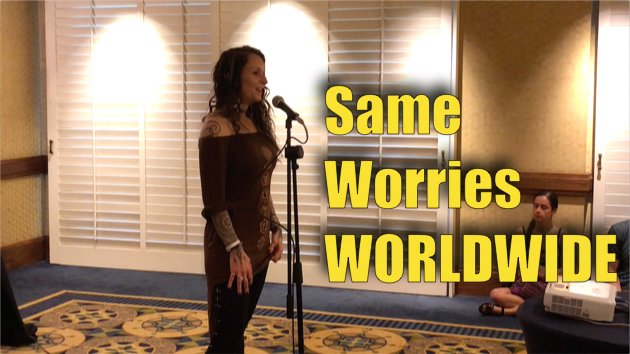
Question: My child is 3 years old. He can sit down and watch [television] (to Sweetest: The lady said some TV program, but I don’t know what she said.) all day. And he always asks me for candies. And I give him sometimes. I don’t have a car at home but if I go to the store, I say “ok I will buy you some candies.” But I have this fear inside me that if I have a bunch of candies at home, he will only eat candies. And I have this fear that he wont go outside to the park and he’ll stay inside watching [TV] all day. So what can you say?”

Answer: Ok, Let’s talk about that. That’s a really great question. So, the most important thing for all humans is freedom. Children as young as a year old, even younger, their innate desire for freedom will override everything else. So if you control, or limit something, your kids lose touch with what’s being controlled or limited, and they just want freedom.
So what happens is they will overindulge because they want freedom above all else. So, by nature, they’re going to want to do what you’re telling them not to do, all day and all night. And even if you let go, and say you hear me and say, “Ok, I’m going to let go of all limits on, say, candy or whatever it is.” It needs to be more than just a physical letting go. You have to really believe in it. Because, you’re fearful. So your child is still controlled.
When a child is controlled, they have a warped relationship with whatever is being limited. You guys must remember this. Think back to when you were teenagers and you weren’t allowed to drink. But you hung out with your friends and you got wasted because you had the freedom and you could. Or there are a number of examples I could give you.
But when someone is limiting or controlling something in somebody else, they overindulge. They have a warped relationship with whatever’s being controlled. So the only way for a child to find true balance and health is with complete freedom.
But at 3 years old, I mean, you bring into the house what you’re comfortable with him eating. I don’t mean that you need to bring in truck loads of candy and pour it into your living room and say, “Ok guys you’re free! Eat whatever you want!” You have your own personal values and morals and what you wanna do.
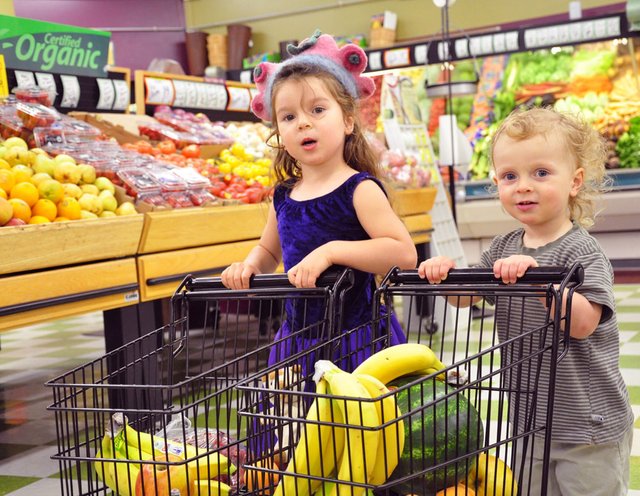
When we go to the grocery store, we do something called “freedom shopping.” My kids each take their own cart and they get what they want. But they have a budget. Because there are real life limits! We only have so much money in a given week, so I tell them “Ok, you guys can spend $20 each” and off they go. And we meet at the register to pay.
You’d be blown away at what they choose with freedom. I’m always so surprised.
I actually had a "freedom shopping challenge" on my YouTube channel and dozens of families took part in it. Every single one of them said it was life-changing. Because when their kids have freedom and trust, they wanted to make good choices for themselves! So I encourage you guys to do that. See what really happens.
Obviously if your child is 2, you don’t want them off in a stroller by themselves. But, you could follow them.
Question: What advice would you have for someone who’s spouse isn’t necessarily onboard? So my business partner did unschooling for a very long time, and I saw it. So we moved from home schooling to what is called "loose schooling" which is the in-between between homeschooling and unschooling. And my wife is amazing, but not quite on board. She does want to have to-do lists, and structure, and all that. How can I convince her…well I know she still has some work to go through, is what I’m saying, and that fear impacts my children. But she’s my life partner and how do you recommend I navigate that, because she thinks without structure, he’ll just sit around all day long, won’t have any social interactions…
Answer: Right. Well the basis of unschooling is no forced learning of any kind. So I’m going to apply that to your partner. I would invite her, offer to give her information, but don’t give it to her unwarranted. Try that, doesn’t work. The opposite happens. So maybe just say, “We’re really noticing that the kids are unhappy. Can we just talk? There are a few things that I want to share with you.”
The other thing to keep in mind is that if only 50% of the parents, if only one of you is parenting this way, your kids are still better off than 99.9% of kids on this planet. So I can help you more with that if you’d like, offering more details, but I really think just by offering, leading by example, and just supporting her where she’s at, compassionately.
Question: Hi! Thank you so much. I was schooled, but now I am breaking free from that. So I wanted to ask you, how do you influence your kids, if you try to influence them, do you try to influence them environmentally by changing what’s available to them? Because you mentioned you left books around, to encourage them to read. So I’m just wondering do you influence them indirectly by modifying the environment, or is it like, do you not influence them at all?
Answer: Well when they were really little, there’s this concept called “Strewing” (putting many things around everywhere, a “mess” on purpose), I don’t know if you’ve ever heard of it, with unschooling. So you leave interesting things around the house. So I’d put puzzles on the kitchen table. So after they would go to bed…actually, I would go to bed before them. Before they would wake up, I would put puzzles on the table and put books around, whatever they were interested in, I’ll facilitate, just put things around that they can bump into (have nearby and accessible). I put recipes on the table, we’d make breakfast together.
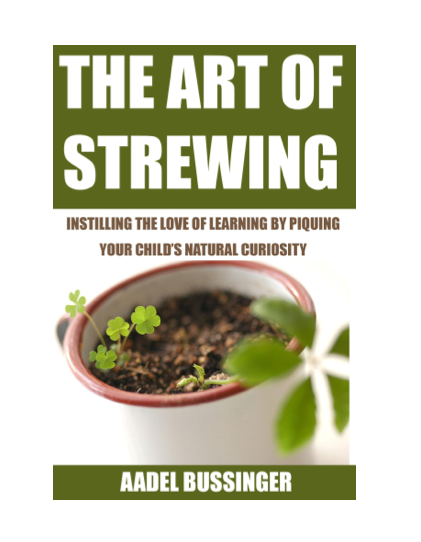
As they get older, it changes because they’re self-motivated learners in a totally different place, so that doesn’t happen so much anymore. They’re just used to this life. But when you say “influence” can you say what you mean?
Question: I mean, when I grew up, my parents would force me to do things that were good for my health and my financials, and what not. I’m wondering if there’s any coercion you apply to your kids. There must be at least like something that you do to try and direct them and guide them, right? So I’m wondering if there’s anything you do on the coercion side?
Answer: Well, no. Never coercion, never force. But, we have discussions. Deep discussions and it’s always consensual. Always. So, I don’t think that you needed to be forced or coerced, to learn what you learned. It was a technique that was used, but why wouldn’t you have wanted to learn those things anyway?

It’s really important for people to understand that things like reading, writing, and math for example. Schools want to make you believe that they are the only place you could learn these things. That they hold all the secrets that are locked up. It’s not true. Reading, writing, and math, they’re just tools! They’re just tools to help you get more of what you want in life! What human being would not want to learn tools to help them get more of what they want in life, unless they were forced? Then, everything’s screwed up. So I never force them, but we talk a lot. We have a lot of discussions, for sure. Great question. Thank you.
Question: So my question is about the transition. When they’re old enough to understand you talking about what is healthy and what is unhealthy. A small child, or a toddler, doesn’t understand that gorging on cake can actually make them feel bad in the long run, how do you deal with that?
Well, when they were really young I would just go grocery shopping and bring back into the house what I felt comfortable with them having no limits with. So I always had that in my mind. That if I get these box of popsicles. And we’d get the sugar-free, organic, natural juice kind, I needed to be comfortable with the fact that they were probably going to eat the whole box that day.
What about when you’re at a friend’s who doesn’t eat so healthy? Like a birthday party.
Answer: This is a really great question! So, because we live in a partnership-based paradigm, instead of the authoritarian paradigm, my kids don’t fear me. They don’t fear punishment. They like being around me. And they believe what I say. So when I give them information, and I would never embarrass them either, but say we were at a party, I might just give them some information about that cake. “Just so you know, it has a lot of sugar, and you might just want to eat a little. Don’t go crazy. If your stomach starts to hurt, let me know.”
You’re kind of acting like what you would do with a friend, or anyone you care about. You give them information! And they believe me! They know they’re not going to be punished, or hurt and so they actually turn to me for that, and say “Ok, cool, thanks mom.” Every single time.
So it’s the relationship. It’s the partnership-based paradigm versus the authoritarian paradigm that changes everything. So you have influence in your child’s life and they believe you! They’re not fearing you. They’re not forced to lie. Their freedom isn’t threatened to be taken from them. They’re not controlled. And in that situation, it changes everything. So my kids will turn to me for information.
For example, when they were little, before they would go into the library, I didn’t have to threaten them and say “You’d better be quiet in here!” I just said, “Ok guys, just so you know, libraries are pretty quiet, they’re for reading, people are on computers, so if we go in here, we’ve got to be kind of chill. But I would always know if they had too much energy to go in there too. You know, you need to be really tuned in. So sometimes I would take them to the playground first.
And they thanked me for that information! Before we went to the grocery store, I would say, “Just so you guys know, don’t run around and be crazy, because there’s a lot of people here, I don’t want things to get knocked over” and they’d say “Ok ok”
So do you feel the contrast between authoritarian parenting and partnership-based parenting? It’s hugely hugely different.
Question: So if we could return a little bit to the food thing. We’re having sort of a struggle in our house. My husband or I will prepare something for a meal and we’ll sit down together and the kids will not be interested whatsoever. And they’ll say “We want something else. We want a bowl of cereal, or we want ice cream, or we want…something.” And we’re really struggling because we worked really hard to make their food and they don’t want to eat it sometimes and it’s frustrating.
Answer: Yeah, I understand. I get it. But did you ask them, to begin with, if that’s what they wanted for dinner?
Q: A lot of times, yes.
A: They say yes, and then they change their minds?
Q: Yes.
A: I think it’s something that a lot of parents stress over. I understand that they might take it personally. And I have to tell you, it drove me crazy when my mother would do this. So think back to when you were children yourselves. You can find a lot of answers. If I didn’t like something my mother made, she would take it personally. She would like, sulk and be so mad, “I’m so sorry Dayna. I’ve failed again!” Or whatever, and I would say, “No, it’s not like that, I just wanted chili. It’s not a big deal.”
And so, I think a lot of our conditioning runs really deep. And a lot of times, our reaction is based on how we were parented. I would really ask yourself, “Is the story you’re telling yourself in your head, is it true?” Is your child unappreciative of the work you put in? No, they’re just not into that. It’s not a big deal.
Q: So just get them the other food that they want?
A: Yes.
Q: Every time?
A: Every time.
Q: Ok…
A: But I will give you a tip. So people hear that, and I know it freaks you out a little bit, but just stay with me. So I would take a muffin tin…I actually still do this with my youngest one!…and put some healthy snacks and some fun cereal in each little muffin tin. And I just put it in front of them when they’re doing something. And you’d be surprised with how much of the healthy stuff your kids will eat
Q: When you’re not forcing them to…when it’s not an actual meal time…
A: Yeah, and to force a child to sit at the dinner table, you know, most people in our culture, the only time they spend together is at dinner. So all this stuff is pushed, in the media, on commercials, you know the “family table.” That’s not our life! We spend time together all the time! My kids don’t have to sit at the table if they don’t want to. They can do whatever they want with their time. Sometimes they choose to. But sometimes I don’t even want to sit at the table. I kind of like to hang out on the couch and eat dinner sometimes. It’s like my down time.
But my point is, that’s part of deschooling and de-conditioning yourself from seeing things in a certain way. You’re looking at things possibly through the lenses of a mainstream perspective. And so you have to ask yourself, “How sad is it, that most people are only with their kids at dinner." That makes me so sad to think about. And most of the kids, they don’t want to be there.
Question: In our house, we share custody. So children go back and forth between mom and dad. So as a co-parent and respecting the other boundaries, what I’ve seen over the years is, when they spend 5 days with mom, I spend 1 or 2 days transitioning to the lifestyle that we’re creating in our own home. I just wanted to ask if, in co-custody situations, if you’ve had experience with someone who is so so resistant. Even after some education. Allowing them to ask before offering information, because it seems as though it’s not just two different worlds. I’m concerned about the other parent challenging what I do on every angle. So what do you do about that?
Answer: I think talking to your kids about it is really helpful. I’m not sure, how old is your, did you say 11?
Q: Yes.
A: Then talking about it in a very positive, respectful, compassionate way that, “Mom does things differently. And we just have different beliefs. She is just doing things in a different way.” And I just don’t think that kids can adjust well, but kids can. They understand very well. Just like you did when you were younger. You went over to grandma’s house, there were certain rules. My grandmother was super religious, so there were a bunch of things we couldn’t do. And I went back home and we adjusted to our life and philosophy there. So, I think kids really do adapt, as far as that goes. But really talking about it, is important. Being compassionate, like a lot of times when a child gets punished, like say your child goes to you and just say “I’m so sorry you’re hurting. I love you and I’m sorry that happened to you.”
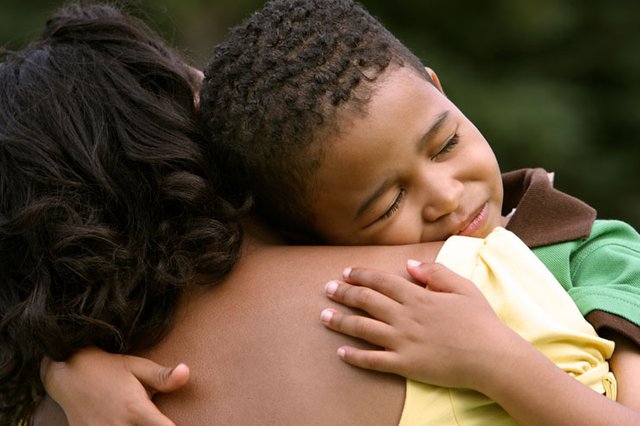
And just empathize. I think when kids are heard when something bad happens, it can change the whole experience. I was told once that a parent or an adult validating abuse in a child, and being there, to be compassionate, is really healing and the damage isn’t done necessarily, from a child who didn’t have that. So you being a voice of just compassion and love, despite the mother being different. Oh my goodness. It’s really really good.
Q: “We don’t have a television in our house, and what do you do about kids who just want to watch TV all day and you’re worried about it damaging their eyes?”
(I missed this part on video, but Dayna began by saying that schools drug children to force them to show interested in things they’re not interested in. However when kids show the same level of focus in subjects that interest them, it's labeled "an addiction.")
A: So that same zombie look, if a child is reading a book with that same look... parents think that’s just wonderful. I think we really need to open our minds and see that just because a child might be interested in technology, whether it’s an iPad or a phone, or TV, to really not judge it in the way that society does.
So I know this is a really challenging one. And for every family there’s different rules and values around things like a television, but I want you to really take a look at that fact. If that child had that same look, that same focus, on something that you approved of, you’d be so proud. With the exact same behavior, exact same look.
You need to see everything your child is interested in as an extension of themselves, because it is. Everything. Everything your child is interested in. Everything they love. Everything they’re passionate about is an extension of who they are. And they don’t see that separateness.
So if the parent is judging, and saying, “Oh that’s such junk that you’re playing with.” Or “That’s such crap on TV!” Children internalize that, deeply. And they feel as though “Mom thinks that part of me is really bad. And broken. But I like this show! I like this game! Something’s wrong with me…And so I’m going to lie, because I don’t want her to know that I’m seeing this, because it hurts me.”
There’s so much internal dialogue that goes on when you judge your child’s interests and choices. Now with true freedom it is very different. If those things are limited, at all, a child will want to do nothing but what is limited or controlled. So I don’t necessarily agree that there’s freedom in that situation.
Because then children could really tune into their bodies. They can feel when it’s too much. My son Orion, he loves gaming. And he’ll say “Ah, I need to step away from the computer. My eyes hurt.” He gets headaches sometimes and so he’s like, “Mom, I’m getting a headache, I need time away. Let’s go outside.”

So my kids have freedom and they can tune in when something is harming them, whether it’s food or technology. Gaming is very in-depth and it takes hours. But my kids, because they’re not limited, they can feel it. And I don’t get mad at him, I don’t yell at him. I don’t say, “Well that’s it for the day! You’re not playing!”
I say, “Do you want to go outside buddy? And I can read you a book. Or you can lay in my lap.” And he comes to me and when he’s feeling better he’ll go back to his game or he might do something else.
So the funny thing is, that I want to end on, all things that parents are afraid of, that they think are harming their children, so they try to control or limit, it’s a self-fulfilled prophecy because it’s the limiting and controlling that’s hurting your children, NOT the things being controlled.
It’s exactly what it is. The limits and controls, judgments, that is what’s damaging your children, more than anything.
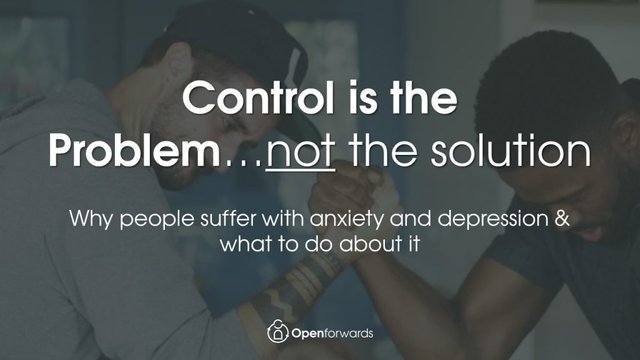
Michael here
Couldn't have said it better myself. Control and coercion are the problems, not the things being controlled. Trust your children with freedom, just as you wish to be trusted yourself. Children are people too.
Thanks for reading. More to come on this topic as we break into the new year with other ways to be free.
有办法
-Michael McGillicuddy
Acapulco, Mexico 🇲🇽

Congratulations @michaelmcawesome! You have completed the following achievement on the Steem blockchain and have been rewarded with new badge(s) :
Click here to view your Board
If you no longer want to receive notifications, reply to this comment with the word
STOPTo support your work, I also upvoted your post!
Hello @michaelmcawesome! This is a friendly reminder that you have 3000 Partiko Points unclaimed in your Partiko account!
Partiko is a fast and beautiful mobile app for Steem, and it’s the most popular Steem mobile app out there! Download Partiko using the link below and login using SteemConnect to claim your 3000 Partiko points! You can easily convert them into Steem token!
https://partiko.app/referral/partiko